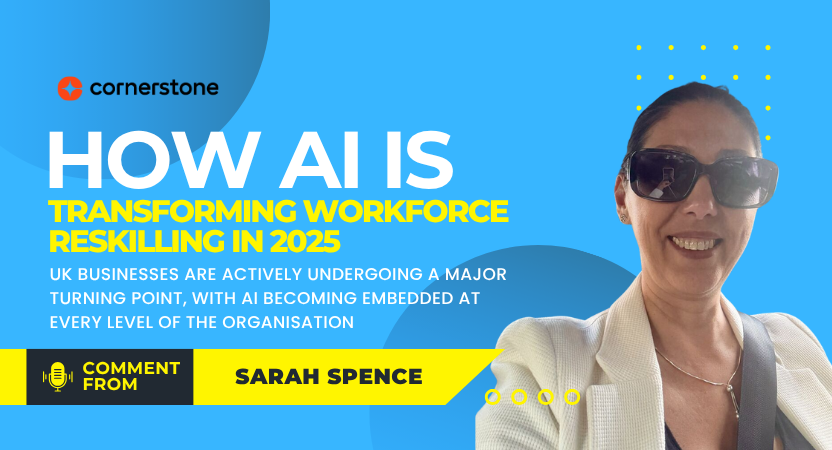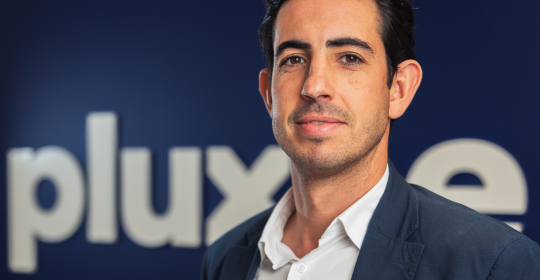UK businesses are actively undergoing a major turning point, with AI becoming embedded at every level of the organisation.
With AI at the forefront of so many jobs, the World Economic Forum predicts that by 2030, around 60% of the workforce will require significant upskilling. That’s more than half of today’s workers needing to adapt just to stay effective in their roles. With the pace of change only getting faster, businesses need to keep up, particularly when it comes to their employees' skills.
Advancing skills to meet the modern needs of today’s economy cannot rely on the training methods of years past. Learning and development must utilise the technology that is driving business change to begin with - namely AI. Reskilling and upskilling talent to meet the needs of a business will require more than the static, one-size-fits-all approach of traditional trainings. AI will help empower personalised learning at scale, needed to keep pace with evolution of the modern workplace.
From generic to personalised learning
AI is taking workforce upskilling from broad, impersonal training toward experiences that are far more personalised.
By analysing large datasets, from employee behaviour and job performance to market trends, AI can tailor learning pathways to each person’s needs.
Using a more tailored approach doesn’t just boost engagement; it ensures that the training is relevant and timely. In fast-moving sectors such as healthcare, retail, and public services, where skill shortages can have real-world consequences, agility in learning is critical.
For example, in the NHS, technology is playing a greater role in healthcare delivery. Staff at every level must be digitally literate, and AI-powered training can help meet this demand efficiently whilst getting the best out of every employee.
Bridging organisational gaps
Not all organisations have equal access to resources for reskilling. SMEs often lack the capacity to run traditional training programmes, with 55% of UK SMEs not arranging or funding training.
AI levels that playing field. With AI-driven tools, SMEs can offer the same personalised development opportunities as larger corporations. Offering the same robust opportunities as some of the county’s largest, most innovative employers can attract and retain talent whilst strengthening economic resilience.
Enhancing government initiatives
Government-backed programmes like Skills Bootcamps, Local Skills Improvement Plans, and apprenticeships are a step in the right direction to national support with skills initiatives, but AI has the potential to amplify their impact even further.
By aligning insights generated through AI with these frameworks, businesses can create training that meets both individual needs and broader economic priorities. Predictive analytics allows HR and L&D teams to anticipate skill gaps ahead of time and tap into overlooked internal talent. The result is a more strategic, forward-thinking approach to workforce planning.
The real-world Impact of skill-focused strategies
Early adopters of AI-driven learning are already seeing real benefits such as greater workforce agility, stronger talent pipelines, and improved business outcomes.
As rapid innovation shortens the shelf life of specific skills, “skill fluidity”, the ability to apply existing capabilities in new roles or contexts, is becoming essential. This is especially true in high-demand sectors like tech and consulting. Meanwhile, frontline workers are adapting on the job, upskilling continuously to meet shifting expectations.
AI can also measure skills that are often hidden or unconscious. This creates new possibilities for recognising talent that may otherwise go unnoticed within an organisation.
As the pressure grows to demonstrate a return on investment in upskilling initiatives, organisations will need to invest in tools that not only track learning but align it with their business goals.
Looking ahead
AI is not just changing how we train; it’s redefining what effective upskilling looks like. To keep pace with change, workplace training must be ongoing, embedded in the flow of work, and personalised to each employee's journey.
If businesses want to stay competitive, they must embrace AI as more than just a passing trend. Done right, AI can bridge the gap between people and opportunity, across every industry, region, and role.






